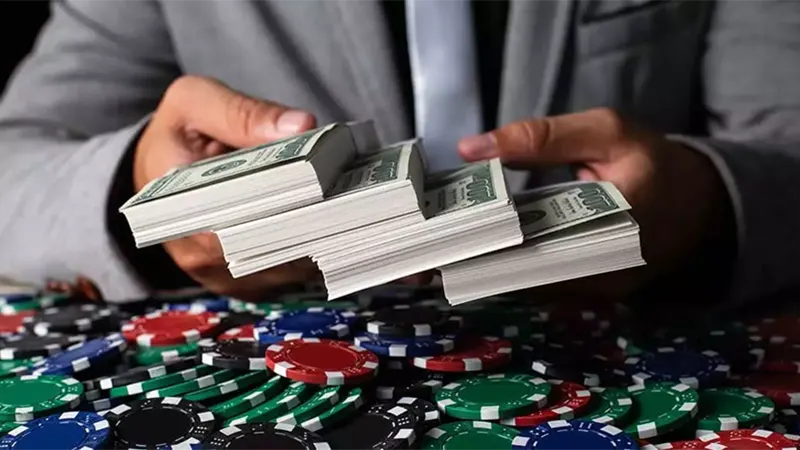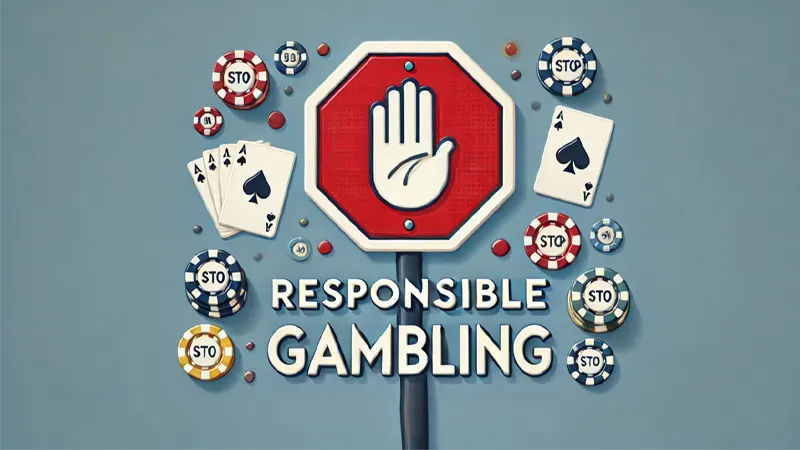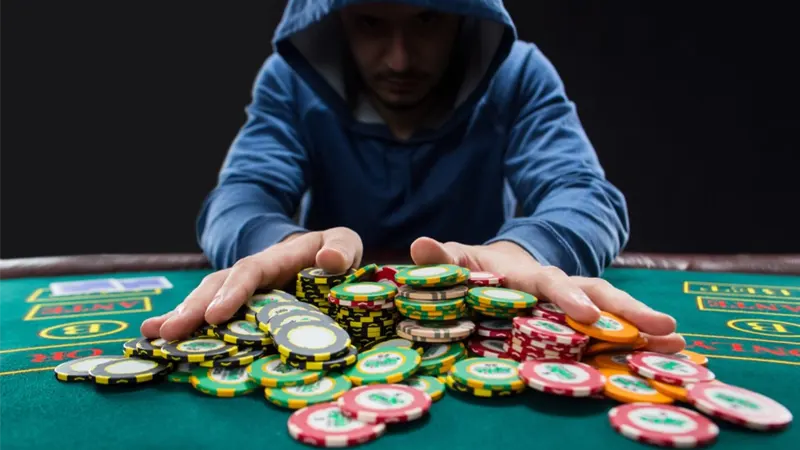Many gambling enthusiasts have experienced this familiar pattern: winning a few rounds at the beginning, feeling confident and excited, only to gradually lose everything back and more. This phenomenon isn’t just about bad luck or coincidence – it’s a combination of mathematical probability and psychological factors that create a perfect storm for extended losses.
At 82 Lottery, we’ve observed this pattern countless times among players across various gaming platforms. Whether it’s slot machines, table games, or lottery-style games, the longer someone plays, the more likely they are to experience significant losses. This isn’t a conspiracy or rigged system – it’s simply how gambling mathematics and human psychology interact.
Understanding this phenomenon is crucial for anyone who wants to enjoy gambling responsibly. By recognizing the underlying causes and implementing proper strategies, players can better protect themselves from the natural tendency to lose more during extended gaming sessions.
The Real Reason: Probability and House Edge
Every gambling game is designed with a mathematical advantage favoring the house. This advantage, known as the house edge, ensures that over time, the casino will profit from player activity. While individual players can certainly win in the short term, the mathematical reality becomes more apparent as the number of games played increases.
For example, if a slot machine has a 96% Return to Player (RTP) rate, it means that for every $100 wagered, the machine will theoretically return $96 to players over millions of spins. The remaining $4 represents the house edge. In short sessions, players might experience significant wins that exceed this theoretical return, but as play time extends, actual results tend to converge toward the mathematical expectation.
This convergence is governed by the law of large numbers, a fundamental principle in probability theory. The more trials (games played), the closer the actual results will be to the expected mathematical outcome. Therefore, extended play sessions naturally favor the house, not because of manipulation, but because of basic mathematical principles.
The house edge varies across different games, but it’s always present. Understanding this concept is essential for realistic expectations about gambling outcomes, especially regarding technologies like Slot RNG systems that ensure each spin is independent while maintaining the predetermined house advantage.
Psychological Effects That Increase Losses
Loss Chasing Behavior
One of the most destructive psychological patterns in gambling is loss chasing – the tendency to continue playing after losses in an attempt to recover lost money. This behavior is driven by the emotional pain of losing and the irrational belief that continued play will eventually result in a “balancing” win.
Loss chasing typically leads to larger bets as players become more desperate to recover their losses quickly. This escalation dramatically increases the risk of catastrophic losses, as players often exceed their original budgets and make increasingly irrational decisions.
Overconfidence After Early Wins
Initial wins can create a dangerous sense of overconfidence. Players who experience early success often attribute their wins to skill rather than luck, leading them to increase their bet sizes and extend their playing time. This overconfidence can quickly evaporate when the inevitable losses occur, but by then, players have often risked more money than they initially intended.

The psychological boost from early wins also triggers the release of dopamine, creating a pleasurable feeling that players want to maintain. This neurochemical response can override rational decision-making and lead to extended play sessions despite mounting losses.
Near Miss Effect
The near miss effect is particularly powerful in games like slot machines, where players frequently come close to winning without actually succeeding. These “almost wins” create a psychological impression that victory is imminent, encouraging continued play despite the reality that each outcome is independent and random.
Research has shown that near misses activate the same brain regions as actual wins, creating a sense of excitement and anticipation that can be more motivating than actual victories. This effect is so powerful that it can keep players engaged for hours, chasing wins that may never materialize.
Promotional Incentives
Casinos use various promotional strategies to encourage extended play, including bonuses, cashback offers, and loyalty rewards. While these promotions can provide value to players, they also serve to extend playing time, which statistically favors the house.
These incentives create a psychological anchor that makes players feel they’re getting “free” value, when in reality, the extended play time typically results in greater overall losses that far exceed the promotional benefits.
Real Experience from 82 Lottery
Our observations at 82 Lottery have consistently shown that most significant losses don’t result from single large bets, but from extended playing sessions where small losses accumulate over time. Players who establish clear win and loss limits before playing and stick to them regardless of short-term results tend to preserve their bankrolls more effectively.
We’ve noticed that successful players share common characteristics: they treat gambling as entertainment rather than investment, they understand the mathematical realities of the games they play, and they have the discipline to stop playing when they reach predetermined limits.

Conversely, players who experience the largest losses typically exhibit predictable patterns: they chase losses, increase bet sizes during losing streaks, and play far longer than originally intended. These behaviors are natural human responses to the stress and excitement of gambling, but they’re also the most financially destructive.
How to Minimize Losses During Extended Play
The most effective strategy for controlling losses is establishing firm limits before you start playing. Set both a loss limit (the maximum amount you’re willing to lose) and a win limit (the point at which you’ll stop playing despite feeling “hot”). These limits should be based on your entertainment budget, not your hopes for profit.
Time limits are equally important. Decide in advance how long you’ll play, and stick to that timeframe regardless of whether you’re winning or losing. Extended sessions increase the likelihood of making emotional decisions and exceeding your financial limits.
Never attempt to chase losses by increasing bet sizes or extending play time. Each game outcome is independent, and previous losses don’t increase your chances of future wins. The belief that you’re “due” for a win is a cognitive fallacy that can lead to catastrophic losses.
Finally, remember that gambling outcomes are determined by random number generation and mathematical probability, not by timing, patterns, or previous results. Understanding this fundamental truth can help you maintain realistic expectations and avoid the emotional decision-making that leads to extended losses.
Reality Check: Can Anyone Play Long and Still Win?
While it’s theoretically possible to play for extended periods and still show a profit, such occurrences are extremely rare and typically involve either exceptional luck (like hitting a major jackpot) or very short-term favorable variance. The mathematical reality is that extended play favors the house due to the built-in edge in all casino games.
Some professional gamblers do maintain long-term profitability, but they typically focus on games with skill elements (like poker) or advantage play techniques (like card counting in blackjack). Even these professionals understand that pure luck-based games will favor the house over time.
For recreational players, the goal should be entertainment value rather than profit. Those who approach gambling with this mindset and proper bankroll management can enjoy extended play sessions without devastating financial consequences, even if they don’t show a profit.
Professional Advice from 82 Lottery
Our primary recommendation is to view gambling as a form of paid entertainment, similar to going to a movie or dining out. Budget accordingly, and never gamble money you can’t afford to lose. Understanding game mechanics, RTP rates, and house edges helps set realistic expectations and prevents the disappointment that leads to chasing losses.

Emotional control is crucial for successful gambling. Never make betting decisions based on frustration, excitement, or desperation. Take regular breaks, stay hydrated, and avoid gambling when you’re stressed or emotional about other life issues.
When you do win, consider withdrawing some or all of your profits rather than continuing to play. The temptation to “play with house money” is strong, but mathematically, all money in your bankroll is your money once you’ve won it.
Understanding the Mathematical Reality
The longer you play any gambling game, the more your results will converge toward the mathematical expectation built into that game. This isn’t because casinos cheat or manipulate outcomes – it’s simply how probability works over large sample sizes.
Psychological factors like loss chasing, overconfidence, near miss effects, and promotional incentives compound this mathematical disadvantage by encouraging behaviors that increase both playing time and bet sizes. Recognizing these psychological traps is the first step in avoiding them.
At 82 Lottery, we believe that informed players are better players. By understanding both the mathematical and psychological factors that influence gambling outcomes, players can make more rational decisions and enjoy their gaming experience without falling into the common traps that lead to significant losses.
Remember, gambling should enhance your life as a form of entertainment, not detract from it as a source of financial stress. Play responsibly, set appropriate limits, and always prioritize your financial well-being over the temporary excitement of gambling wins.


